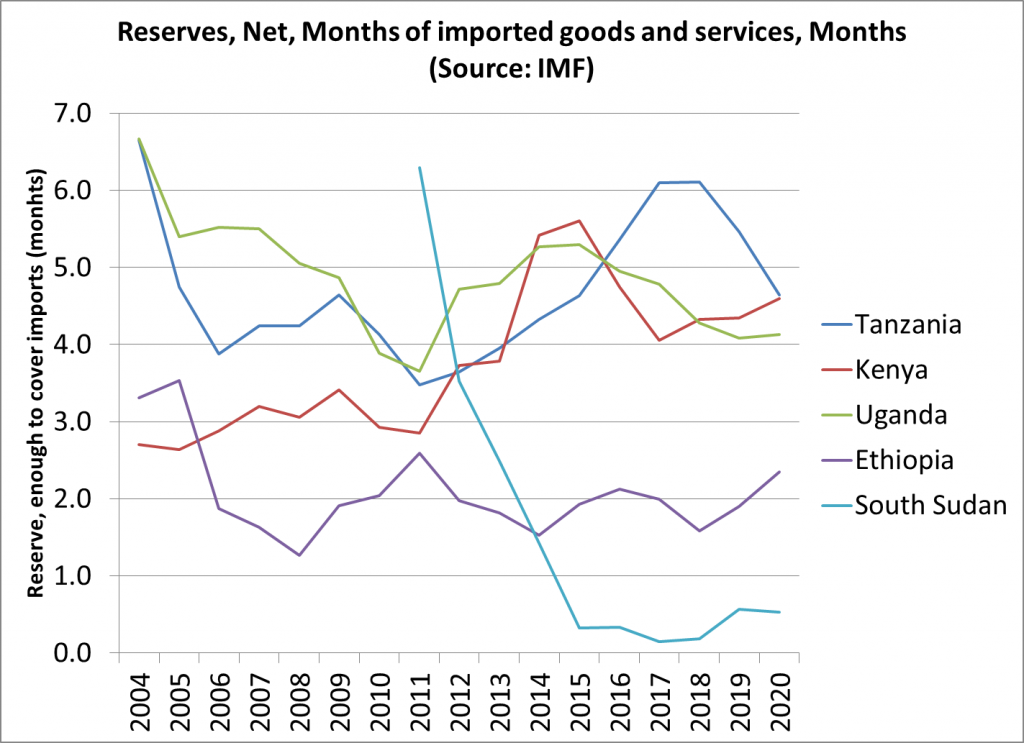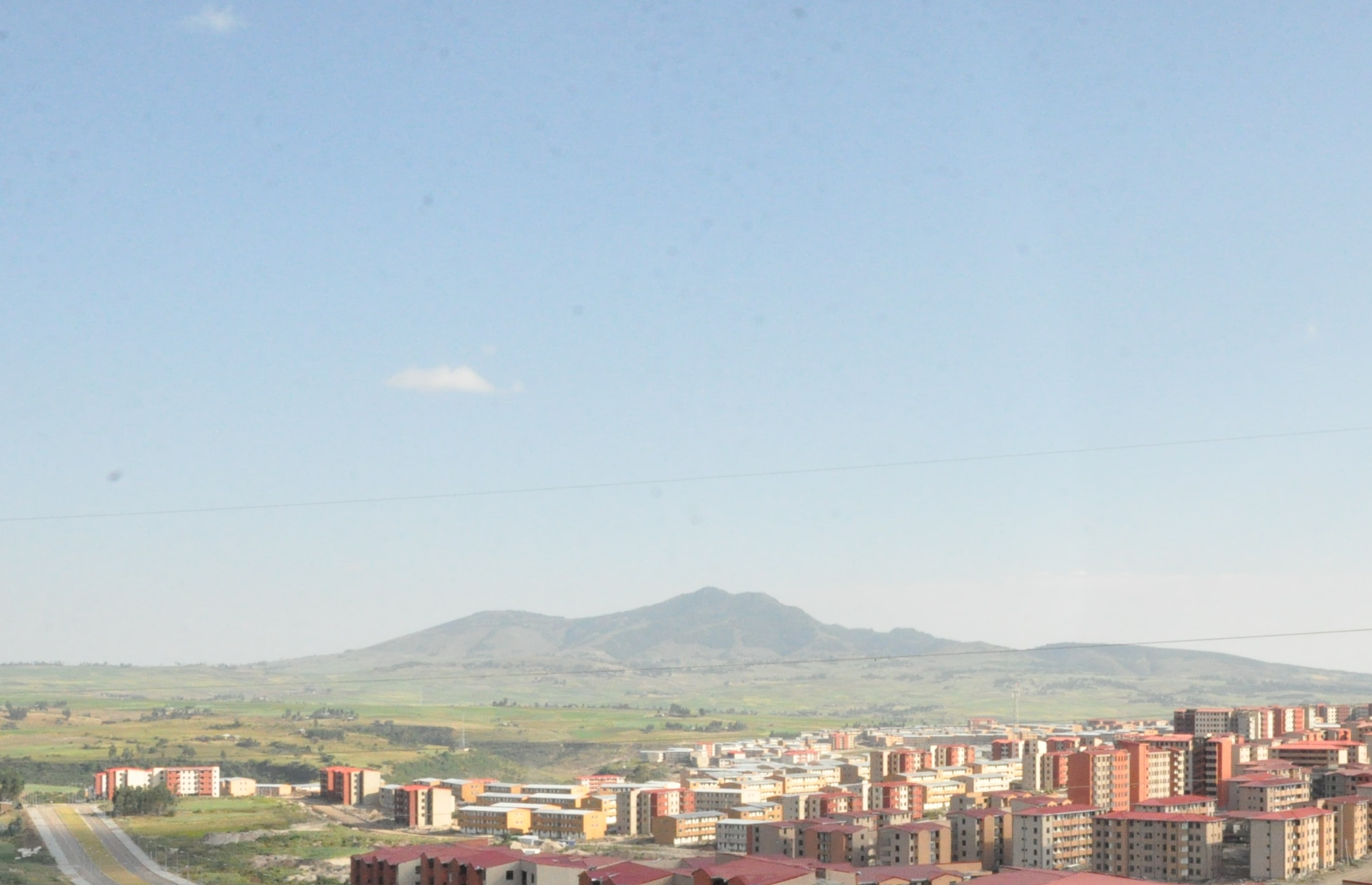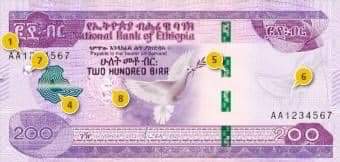The NBE Governor’s False Alarm
On March 19th, the National Bank of Ethiopia (NBE) Governor, Yinager Dessie, presented eight months review of Ethiopia’s 2011 budget to the house of representatives. In that report he spotlighted Ethiopia’s miserably low foreign exchange reserve. In his attempt to stress the seriousness of the matter, he specifically stated that:
(a) Ethiopia’s existing foreign exchange reserve can cover only 2.6 months’ worth imports, implying that the country has reached a very critical stage.
(b) Ethiopia would cut imports to a few basic and essential items such as medicine and fuel, until a mechanisms for foreign exchange earning was sought.
These scary statements were immediately picked by the local press. In its March 31st edition, the Reporter [Amharic], elevated the scary phrases to a headline. Awaze (Alemneh Wasse’s radio) quoted the Reporter at length and produced a thirteen minutes podcast by going into details and amplified the scary news to their followers. Awaze podcast has become a household name for Alemneh Wasse’s reverberating voice on the radio. Awaze tends to pick and amplify only extreme events to warn his followers. Sure enough the governor’s warning was taken so seriously that it got Awazes coverage.
The rest of media outlets have been scrambling to seek clarifications. I came to learn about it when BBC Afaan Oromo got in touch to interview me and gain some insights on how serious the situation was getting. My interview with BBC Afaan Oromo was broadcast on their April 16, 2019 broadcast.
In the first instance, let’s focus on the figure related to the 2.6 months the governor mentioned regarding the size of Ethiopia’s foreign exchange reserve. Everybody took the governors words for granted and assumed that the country has entered dangerous zone. On the contrary, I did not see anything new in this because I was aware that Ethiopia’s foreign exchanger reserve with IMF has rarely exceeded 2.6 months’ worth imports. Ethiopia has been in that danger zone for very long time.

Data plotted in this chart was obtained from the IMF website, it starts from 2004. I think the situation was not markedly different during the pre 2004 years either. First, even the 2.6 month the governor quoted is erroneous, IMF record shows 1.9 for 2019. Second, Ethiopia’s reserve has been around 2 months import mark for the last 14 years (2006 to 2019). The average for the 14 year period was 1.9. Third, Ethiopia has always been the worst performer in foreign exchange reserve, compared to its nearest neighbors, only South Sudan fell below Ethiopia and only for the last few years, and for known reasons.
It means a 2 months import covering foreign reserve is a norm rather than an exception for Ethiopia. As for the related item, it does not make sense for the bank governor to argue that Ethiopia can afford to import only essential items. Ethiopia has been permanently stuck in that low level reserve position for very long time. Regardless, Ethiopia has been importing all kinds of consumer items as well as capital goods, particularly to satisfy demands from mega construction projects. Nothing new as far as Ethiopia’s foreign exchange position was concerned.
Clearly, the NBE governor is factually wrong and the conclusions he drew was nothing more than a red herring. At this juncture, it is appropriate to raise a relevant question: Why did the NBE governor choose to be such an alarmist?
There can be two possible explanations. It is possible that the NBE governor did not check his facts when he was preparing his report. But it is difficult to accept that somebody in his position, surrounded by able assistants, would be that uninformed about trends in the country’s foreign exchange reserve. Measuring sizes and trends in foreign exchange reserve is a daily routine task of any national bank governor and his staff.
It is also possible that the NBE governor has done that on purpose to achieve some hidden political motive, possibly to arouse public anger that the ongoing political and economic reform is causing misery to the lives to ordinary citizens. We can only speculate, the only person who knows the real motive is the governor himself.
The Bank governor’s report was a red herring because he has diverted attention from the real issue that needs to be discussed: how can Ethiopia pull itself out of the quagmire in foreign exchange shortage.









